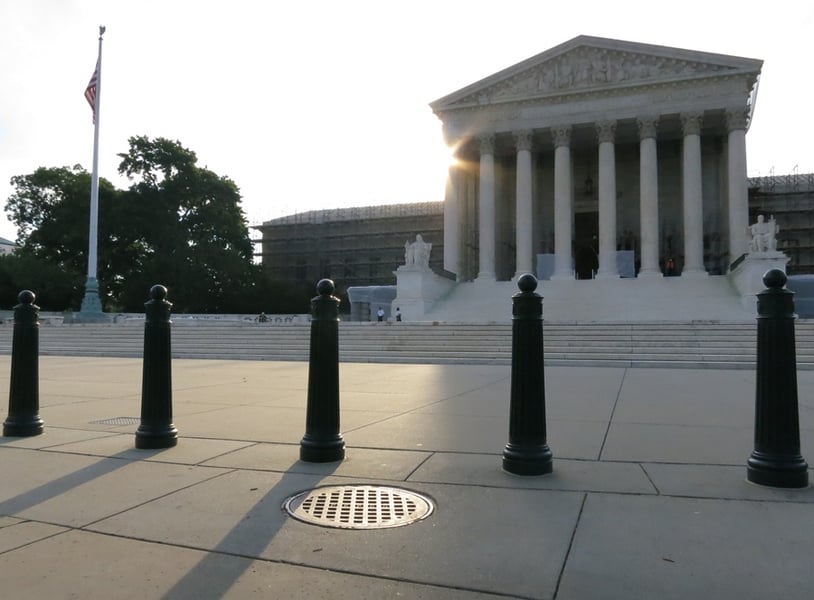If the kitchen wasn't full before, it is now. The U.S. Supreme Court just stirred up the fiduciary standard debate with
its recent decision in Tibble v. Edison. For years, the Department of Labor and the Securities and Exchange Commission have been cooking up rules to provide a uniform fiduciary standard for those providing personalized investment advice regarding securities to retail investors. While the DOL's focus is limited to accounts covered by ERISA, the SEC has been focused on the study of a potential uniform fiduciary standard for advisers rendering personalized investment advice to any retail customers. With its decision in Tibble v. Edison, the Supreme Court may have sent the DOL and the SEC back to the test kitchen for more seasoning.
At issue in Tibble v. Edison was whether an ERISA fiduciary has an ongoing duty to manage plan assets for statute of limitations purposes. The Court's ruling, while in line with the recent push toward a higher standard for those rendering investment advice to retail customers, appears to be at odds with
the DOL's newly proposed rule expanding the definition of “fiduciary” under ERISA. As many commenters have been quick to point out, the DOL's inclusion of IRA accounts as subject to its proposed rule creates fiduciary duties for many financial advisers not previously held to such a standard, specifically broker-dealers with respect to nondiscretionary IRAs.
This expansive inclusion, coupled with the limits on transactions in which a fiduciary receives certain types of compensation, such as commissions or 12b-1 fees, would significantly change the way many broker-dealers and, as a result, many retirement investors, handle IRAs. In order to alleviate some of the concern over this prospect, the DOL proposed a “best-interest contract exemption” (BCE) to purportedly accommodate a wide range of current business models, some of which rely on would-be prohibited compensation. The BCE would generally allow a fiduciary to enter into certain prohibited transactions, provided that the fiduciary enters a contract with the plan or IRA holder promising to act in the plan or IRA holder's best interests. At first glance, this does not appear to be at odds with Tibble v. Edison.
(Related read: DOL fiduciary proposal feels heat as more industry players pile on)
Here's the rub: According to the DOL, the BCE does not mandate an ongoing or long-term advisory relationship, but rather leaves that to the parties to the contract, the terms of which would govern whether the nature of the relationship between the parties is ongoing or not. The allowance of a short-lived fiduciary duty is central to allowing broker-dealers to reasonably modify their current business models to accommodate the requirements of new rule. Tibble v. Edison, however, makes clear that a fiduciary's duty to an ERISA plan is ongoing. Can the BCE be squared with Tibble v. Edison or vice versa? Perhaps there is room for both due to the Court's limited ruling. Although the Court held that a fiduciary's duty is ongoing, the Court declined to address the scope of the fiduciary's duty, remanding the case back to the Ninth Circuit. The Court, however, held that changed circumstances was not the only scenario in which a fiduciary's failure to re-evaluate investments might be a breach of that fiduciary's duty under ERISA. This portion of the Court's decision, again, appears to be at odds with the DOL's intentions with the BCE. The Court did not address the DOL's proposed rule as it was not at issue in the case, but Tibble v. Edison may signal that the BCE may need some additional seasoning to accomplish its intended purpose of allowing broker-dealers to maintain some of their current business models.
Likewise, Tibble v. Edison appears to be at odds with assumptions that the SEC indicated commenters should consider when addressing the SEC's request for data and information regarding a possible uniform fiduciary standard. Specifically, the SEC instructed commenters that, generally, a uniform fiduciary standard would not require a broker-dealer to have a continuing duty of care or loyalty, or provide services beyond those agreed to by the customer. Any SEC rule would not be specific to investment advice provided to qualified ERISA plans or IRAs, but would include such advice to the extent it constitutes conduct regulated by the SEC. As Tibble v. Edison imposes ongoing duties for ERISA fiduciaries, albeit without defining the scope of such duties, any rule proposed by the SEC that provides for short-lived duties for fiduciaries to ERISA plans or IRAs would seemingly offend Tibble v. Edison. The SEC has yet to utilize its rulemaking power under Dodd-Frank to impose a uniform fiduciary standard; Tibble v. Edison indicates the SEC may need to consider adding some real bite to any would-be fiduciary standard.
The SEC has been outspoken that it, not the DOL, should be the regulator to advance a uniform fiduciary standard. If the SEC thought there was one too many chefs in the kitchen before, it has to be feeling even more heat now with the Supreme Court adding its special sauce to the mix. While the Supreme Court's decision in Tibble v. Edison is limited in scope, it may prove to have a profound effect on the great fiduciary debate.
Brendan P. McGarry is an attorney at Kaufman Dolowich & Voluck, and Stefan R. Dandelles is a managing partner at Kaufman Dolowich & Voluck.







